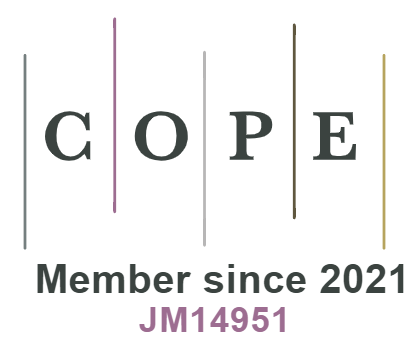Many a face of aphasia treatment: On group speech therapy for adults with aphasic disorders
DOI:
https://doi.org/10.18778/2544-7238.07.07Keywords:
aphasia, group speech therapy, speech and language disordersAbstract
The article attempts to outline selected issues and aspects of group therapy for subjects with aphasia. The author is a speech‑language therapist working with aphasic inpatients, and as such draws on his clinical experience. The introduction discusses aphasia in general, particularly the related terminology and epidemiology. The focus of the subsequent part is on group speech therapy for adults with aphasia. One key point here is a comparative analysis of the main opportunities and challenges which this form of therapy may carry, depending on the type of group in question. The comparison is accompanied by the author’s remarks on some of the assumptions made. The following section of the paper presents and elaborates on four proposals for therapeutic group sessions, all of which have already been implemented in his clinical practice. The conclusion briefly summarises the key findings as well as brings a handful of final reflections on the topic discussed.
Downloads
References
Elman R.J., Hoover E., 2013, Integrating Communication Support into Aphasia Group Treatment, [w]: N. Simmons‑Mackie, J.M. King, D.R. Beukelman (red.), Supporting Communication for Adults with Acute and Chronic Aphasia, Baltimore: Paul H. Brookes Publishing Co, s. 189–220.
Google Scholar
Fama M.E., Baron C.R., Hatfield B., Turkeltaub P.E., 2016, Group Therapy as a Social Context for Aphasia Recovery: A pilot, observational study in an acute rehabilitation hospital, „Topics in Stroke Rehabilitation”, Vol. 23(4), s. 276–283.
Google Scholar
Hamerlińska A., 2009, Grupowa terapia logopedyczna – wybór czy przymus logopedy?, [w]: E. Przygońska, I. Chmielewska (red.), Nauczyciele wobec wyzwań współczesności. Doświadczenia – badania – koncepcje, Łódź: Wydawnictwo WSHE, s. 57–67.
Google Scholar
Humeniuk E., 2021, Terapie wspomagające dla osób z afazją, [w]: Z. Tarkowski (red.), Afazjologia. Organiczne zaburzenia mowy, Warszawa: Wydawnictwo Lekarskie PZWL, s. 225–238.
Google Scholar
Kaczmarek T.T., 2016, Udar mózgu i afazja. Wspomnienia Tadeusza T. Kaczmarka, Warszawa: Wydawnictwo Difin.
Google Scholar
Kaczmarska B., 2017, Twórczość artystyczna w życiu osób z niepełnosprawnością – indywidualny i społeczny wymiar arteterapii, „Niepełnosprawność – Zagadnienia, Problemy, Rozwiązania”, nr 22, s. 107–129.
Google Scholar
Kądzielawa D., 1993, Afazja, [w]: T. Gałkowski, Z. Tarkowski, T. Zaleski (red.), Diagnoza i terapia zaburzeń mowy, Lublin: Wydawnictwo Uniwersytetu Marii Curie‑Skłodowskiej, s. 69–78.
Google Scholar
Litwin M., Pietrzyk I., Seniów J., 2011, Grupowa terapia afazji, [w]: J. Gruba (red.), Wybrane problemy logopedyczne, Gliwice: Wydawnictwo „Fonem.eu”, s. 79–100.
Google Scholar
Panasiuk J., 2005, Afazja – problem narastający, [w]: S. Gajda, A. Markowski, J. Porayski‑Pomsta (red.), Polska polityka komunikacyjnojęzykowa wobec wyzwań XXI wieku, Warszawa: Dom Wydawniczy Elipsa, s. 336–354.
Google Scholar
Panasiuk J., 2015, Postępowanie logopedyczne w przypadkach afazji, [w]: S. Grabias, J. Panasiuk, T. Woźniak (red.), Logopedia. Standardy postępowania logopedycznego, Lublin: Wydawnictwo Uniwersytetu Marii Curie‑Skłodowskiej, s. 869–916.
Google Scholar
Papathanasiou I., Coppens P., Potagas C., 2013, Aphasia and Related Neurogenic Communication Disorders, Burlington: Jones & Bartlett Learning.
Google Scholar
Pąchalska M., 2011, Patogeneza i neuropsychologiczna diagnostyka afazji, [w]: Ł. Domańska, A.R. Borkowska (red.), Podstawy neuropsychologii klinicznej, Lublin: Wydawnictwo Uniwersytetu Marii Curie‑Skłodowskiej, s. 153–194.
Google Scholar
Pąchalska M., 2012, Afazjologia, Warszawa: Wydawnictwo Naukowe PWN.
Google Scholar
Pietrzyk‑Krawczyk I., Grzeszczuk P., 2019, Terapia grupowa chorych z afazją, [w]: J. Seniów (red.), Terapia neuropsychologiczna dorosłych chorych z uszkodzeniami mózgu, Warszawa: Instytut Psychiatrii i Neurologii, s. 150–158.
Google Scholar
Rutkiewicz‑Hanczewska M., 2021, Afazja w ujęciu holistycznym, [w]: Z. Tarkowski (red.), Afazjologia. Organiczne zaburzenia mowy, Warszawa: Wydawnictwo Lekarskie PZWL, s. 147–169.
Google Scholar
Warmuz‑Warmuzińska E., 2013, Filmoterapia w edukacji i terapii dzieci i młodzieży szkolnej oraz dorosłych. Scenariusze zajęć z wykorzystaniem filmów, Warszawa: Wydawnictwo Difin.
Google Scholar
Downloads
Published
Versions
- 2023-12-01 (2)
- 2023-11-29 (1)
How to Cite
Issue
Section
License

This work is licensed under a Creative Commons Attribution-NonCommercial-NoDerivatives 4.0 International License.












